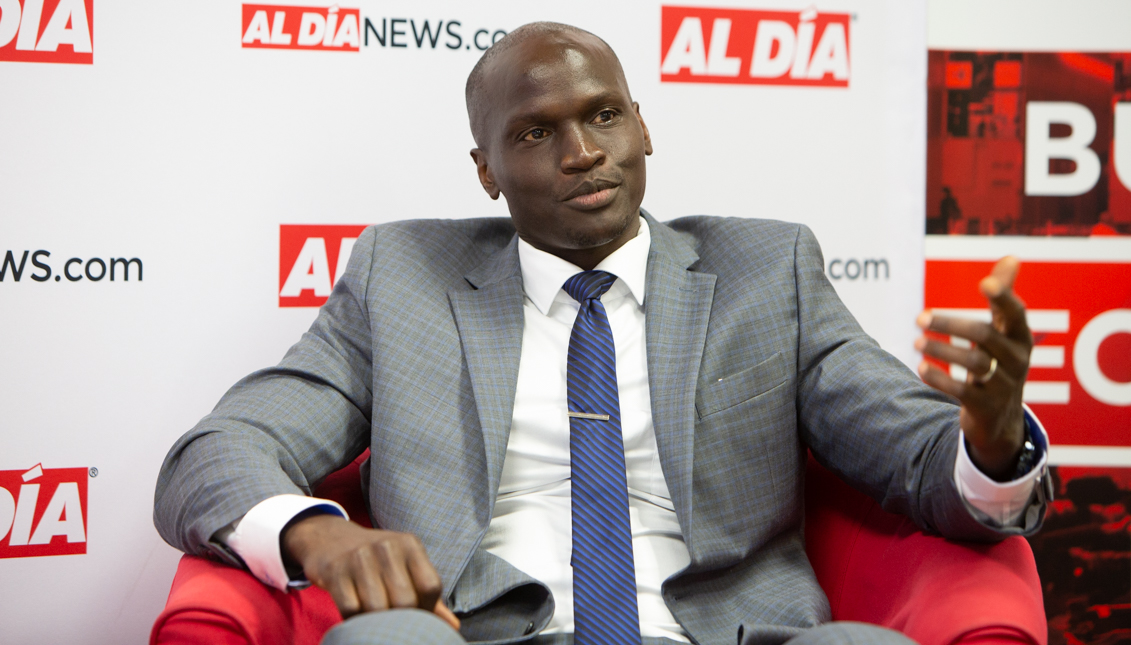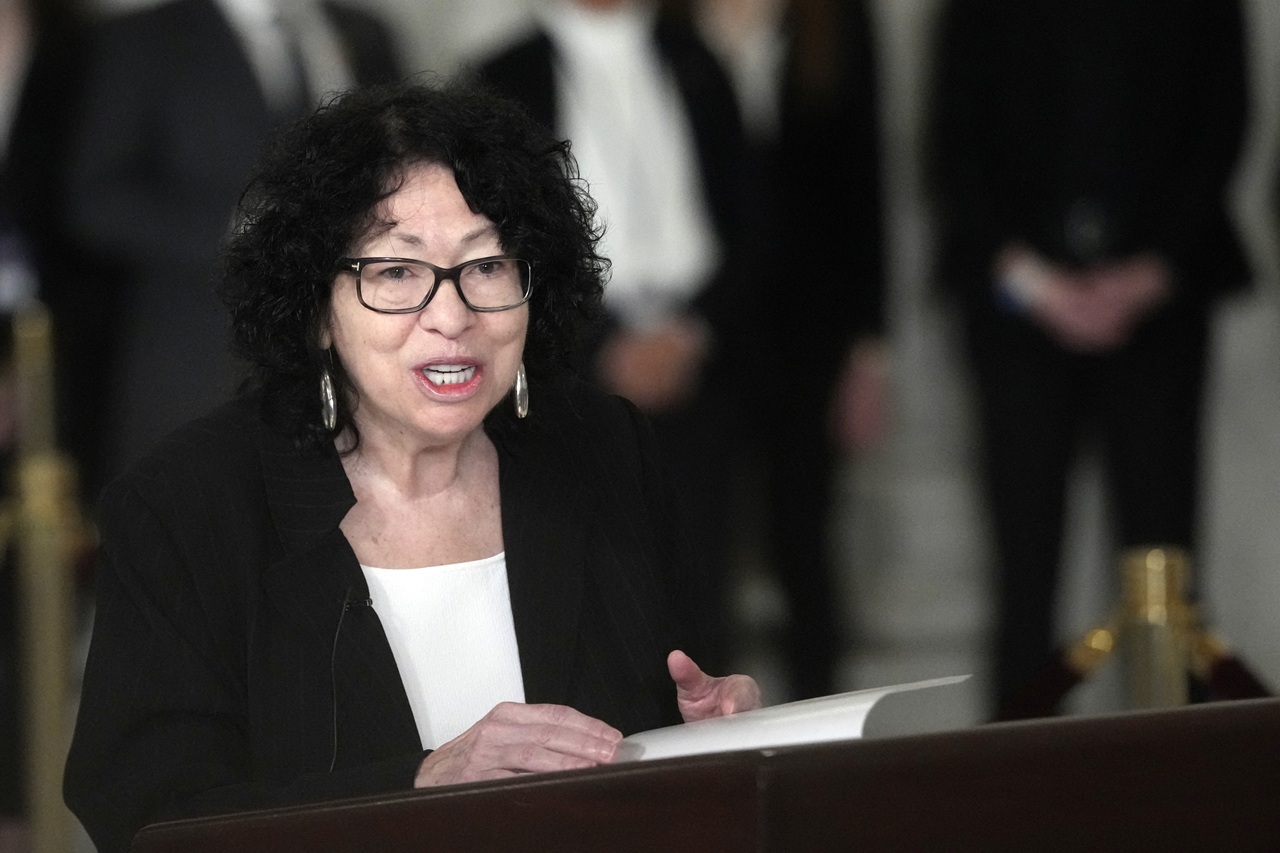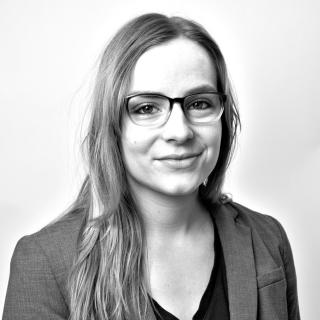
Souleymane Fall: Forging a path for immigrant success
Souleymane Fall, Director of Employment Services and Workforce Development for JEVS Human Services, consults immigrant professionals on how to reach career…
Souleymane Fall speaks with eloquent proverbs and personal anecdotes that define a universal American immigrant experience.
As director of employment services and workforce development for the Jewish Employment and Vocational Service, or JEVS Human Services, Fall has carried the organization’s motive to “Make Hope Happen” for over 13 years, putting it in the context of career success for the immigrant community. Fall is a native of Senegal and knows the dream well - to come to the U.S. and build a professional legacy. Even more so, he knows the right way to achieve it.
The first time Fall went to New York City, a man approached him asking him for change. He was confused - had the plane dropped him in the wrong country? As far as he knew, everyone was rich in America. Fall knew English well — he studied it for his master’s degree in foreign language and psychology from Cheikh Anta Diop University in Dakar, Senegal — but something he did not understand at the time was that poverty is prevalent in the U.S. and here, some beg in the street to pay for their next meal.
“Before we got here,” Fall said, speaking of immigrants like himself, “we thought you would come and just get money out of the trees.”
However, now having lived in the U.S. for almost two decades, Fall sees the naivete that encapsulated his dream of leaving his impoverished country for the “country upon a hill.” His experience was different from immigrants fleeing immediate violence or disaster in their home countries, but the idealistic vision of life in America is known worldwide.
When he sent his first $200 check home to his family, which is customary in Senegalese culture, his mother asked why he was selling drugs. She did not believe he could have acquired the money so quickly any other way, despite the fact that he was working as a teaching assistant through an Amity Institute exchange program in Winthrop, Maine, for a couple hundred dollars every two weeks.
After two years of teaching, Fall learned the importance of following a career path. He dreaded the thought of becoming a beggar or drug dealer, losing sight of his profession and the wealth he dreamt of. Now, he coaches immigrants - lawyers, software developers, professionals with high-level degrees in their home countries or no degree at all - and leads them down a path. He often gives immigrant professionals the hard truth, telling them to downgrade their expectations.
“A job is a job. It makes you provide for your family,” Fall said. “I would rather do housekeeping, flipping a burger, than doing something that ends up giving my hands, losing my freedom.”
Fall would get crack-of-dawn phone calls from family in another time zone, wondering when the next check is coming. He said it’s easy for immigrants who find success in America to forget the idealistic vision of the U.S. they used to have, and the poor quality of life back home, once they’ve lived and learned the culture of opportunity.
But jobs aren’t patiently waiting on this side, either. Fall described the often long and winding process for new Americans to get paid, starting with language development and adjusting to a vastly different culture, one unlike anywhere else in the world.
Don’t look down when someone is speaking to you; it’s a sign of deception. Don’t get too close; Americans like their personal space. If an African American calls you, an African man, the n-word, he probably isn’t attempting to insult you. Arguments on street corners aren’t simply solved with fist fights; they could get you shot in less than a minute. These are lessons Fall learned in his first years in the U.S., and stories he now shares as cultural teaching moments to colleagues and new Americans.
“The streets of Philadelphia could eat you alive,” he said. There are dangers in not knowing minor cultural details. Even Fall, who studied British English, was clueless when his friend explained that the men who called him the n-word on a street corner in Trenton were “hustling” and “packing.” His education told him “hustling” was moving fast or working hard, not its inner-city American meaning of selling drugs. Fall said immigrants need experienced mentors, which can be provided by organizations like JEVS or the Welcoming Center for New Pennsylvanians, to avoid making similar mistakes.
The primary service JEVS offers through its Center for New Americans (CNA) in three Greater Philadelphia locations, which are open to refugees and asylees, is free English as a Second Language (ESL) classes, but it also provides individual coaching for job readiness. JEVS reported that last year the CNA placed 110 of its 182 program participants into jobs and nearly all of them stayed in their positions for 90 days or more.
Additionally, Fall praised the free ESL classes and immigrant services available through the Free Library of Philadelphia and JEVS’ partner, the Welcoming Center. JEVS and the Welcoming Center, which Fall said are often mistaken for the same organization, collaborate frequently on programming for new Americans.
JEVS also supports professionals who need to translate their foreign degrees into a U.S. qualification and learn the job application process, which is where the Welcoming Center’s Immigrant Professional Program (IPP) comes in. Fall advocates for IPP, as well as additional trainings, one-on-one mentoring, volunteering and “earn while you learn” apprenticeship programs as the first steps for immigrants looking to improve their hireability.
RELATED CONTENT
There is “situational wisdom” that can only be understood with time and experience in America, Fall said, which is why JEVS is working to provide mentorship programs that help new Americans navigate everyday life and social interaction in the U.S., keeping them focused on a path to prosperity.
“Most of the time, the things that our parents taught us, we don’t realize how great it is until it’s too late,” Fall said, adding that mentorship plays a big role in helping new Americans avoid dangers or obstacles that may interrupt their career pathways.
While it doesn’t provide income, Fall said volunteering is also a good chance for new Americans to use language, create connections and gain real-world knowledge of professional life in the U.S. It can also fill space on a resume. For an immigrant with long-term career aspirations, volunteering is a great place to start, but Fall also acknowledged that working for free leaves families abroad, again, wondering where their check is.
And living in America comes with immense cost, requiring a steady income. Fall said immigrants quickly realize the financial forfeit of taxes, housing, child care, insurance - essentials that new Americans and their families don’t always anticipate when they arrive. Programs at JEVS that provide “situational wisdom” attempt to diminish this economic learning gap as well.
There are three parties Fall has to satisfy in his position as director of employment services and workforce development: immigrant professionals, employers and JEVS donors. There are rules the organization must follow to receive its federal and state nonprofit funding, and it must appease donors who funnel millions into the programs Fall manages.
As for employers, they are typically hesitant to hire immigrants who are not English proficient, but JEVS encourages companies to offer immigrant professionals paid apprenticeship opportunities and invest in employees with evolving skill sets. The primary incentive on the employer side is diversification of their workforces, and the opportunity to mold employees with the company’s vision.
Fall explained the “incentive ladder” — a starting salary for a qualified individual may be $17 an hour, so a supervisor starts a new American’s apprenticeship salary at $10 and as the employee gains new skills, the salary increases. He said immigrants need to stay motivated during this period. He tells them not to act too culturally different, which he said isn’t always easy, but the goal is to offer a perspective that makes one’s company, family and country better, and this means also aligning with employers’ objectives.
The variety of approaches JEVS takes with individual clients is what has kept it and the immigrant professionals it sponsors satisfied. Fall said he and his staff recognize that no person arrives to the U.S. with the exact same background or expectation for their dream here, and therefore they must face employment issues from several angles.
“Ultimately for me, my position is insignificant compared to the people I work with,” Fall said. “I’m only successful because the participants that we work with are successful. But if they’re not successful, I think someone would be very happy to send me back to Africa with a one-way ticket.”










LEAVE A COMMENT: